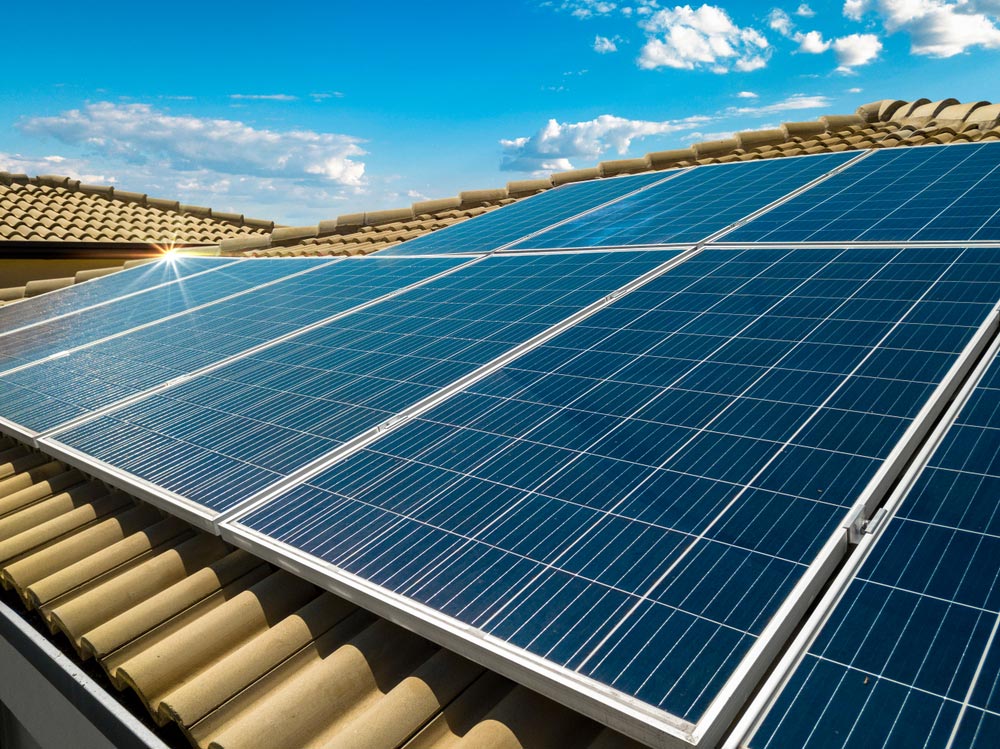- Servicing Queensland since 2010
Solar 101: How Many Solar Panels Do I Need?
July 21, 2023
Investing in solar power is an eco-friendly and cost-effective solution for your energy needs. With the cost of living on the rise, more and more Aussies are turning to solar to power their businesses and homes. One of the first questions people ask when considering a solar system is – “How many solar panels do I need?”.
The answer very much depends on a range of factors unique to your needs and property. In this article, we aim to provide you with the necessary information to determine the ideal solar panel system size for your property, ensuring maximum efficiency and return on investment.
Table of Contents

How Many Solar Panels Does the Average Household Need?
The average Australian household requires a solar panel system between 5kW and 7kW, translating to approximately 10 to 22 solar panels. However, this is a rough estimate. The number of solar panels required for your home depends on several factors, including your energy consumption, the efficiency of the solar panels, your location and your budget.
To help you calculate your ideal solar panel system size, consider these factors:
Daily energy consumption: Review your electricity bills to find out your average daily energy usage in kilowatt-hours (kWh). You can also use online tools or consult a solar services professional to get an accurate estimate.
Sunlight hours: The amount of sunlight in your area will affect your solar panel system’s efficiency. You can find the average peak sunlight hours for your location on the Australian Bureau of Meteorology website. Keep in mind that surrounding tree or building may shade solar panels depending on the time of day.
Roof space: When it comes to solar panel installation you are always limited by your available roof space. Always consult a solar technician to determine how many panels you roof can take.
Panel efficiency: Solar panels come in various efficiency levels. Higher efficiency panels generate more power per square metre, meaning you may require fewer panels to meet your energy needs.
Budget: At the end of the day, your budget plays a big part in deciding what size solar system you can afford. While solar panels will save you money in the long run, you need to take up-front costs into consideration.
Residential Systems: How Do I Estimate the Size of Solar System Needed?
You can calculate the estimated solar system size needed based on your current usage. This method means you can calculate sizing for both residential and commercial properties alike. As a rule of thumb, divide your average daily electricity usage by 3.5. This is because in Australia, on average, for each one kilowatt of solar panels installed, 3.5 kilowatt hours of solar electricity is generated each day.
Residential solar system sizes generated using this method:
- 12 kilowatt hours = 3.4kW solar system size (kWh /3.5.)
- 20 kilowatt hours = 5.7kW solar system size (kWh /3.5.)
- 35 kilowatt hours = 10kW solar system size (kWh /3.5.)
Want to know how many solar panels you need to go off-grid? Click here!
Commercial Systems: How Do I Estimate the Size of Solar System Needed?
Commercial properties have greater energy needs and are much larger. Commercial solar systems fall into three main size categories:
- Below 30 kW: Generally managed by residential installers, this is the smallest category of commercial installations. These systems can generate approximately 120 kWh of power per day and do not necessitate the use of a Grid Protection Unit.
- 30 kW to 100 kW: Solar systems between 30 and 100 kW are medium-sized installations typically found on mid-sized office buildings, clubs and retail stores. Unlike systems below 30 kW, these installations require a commercial solar specialist and additional components.
- 100 kW: Solar systems over 100 kW are common in office complexes, mid-sized manufacturing facilities and hotels. These larger installations demand special meters and involve added intricacies.
Tips to Boost Solar Panel Efficiency
- Choose high-quality solar panels: Choose reputable brands with a proven track record of great performance and durability to ensure your solar panels deliver consistent power output throughout their lifespan.
- Energy efficiency measures: Implement energy-efficient practices in your home, such as using LED lighting, installing insulation and upgrading to energy-efficient appliances, to reduce your overall energy consumption and reliance on the grid.
- Proper installation: Engage a professional solar services provider to install your solar panels, ensuring they are positioned optimally to capture the maximum amount of sunlight.
- Regular maintenance: Keep your solar panels clean and free from dirt and dust, as it can reduce solar panel efficiency. Schedule periodic inspections to identify and address any potential issues.
- Monitor your system: Utilise monitoring systems to track your solar panel system’s performance and make any necessary adjustments to optimise its output.
Still Not Sure How Many Solar Panels You Need?
Contact our team of talented technicians! At Apollo Solar, we understand that calculating the ideal solar panel system size can be a tricky task, so if you need some expert advice, don’t be afraid to reach out. As a leading provider of Solar Services in Brisbane, we’re here to help you make the right decision for your home and energy needs. Our technicians will assess your property’s location, orientation, energy consumption and budget before designing a custom solar solution tailored to your needs. Contact us today and take the first step towards a more sustainable, cost-effective future.










